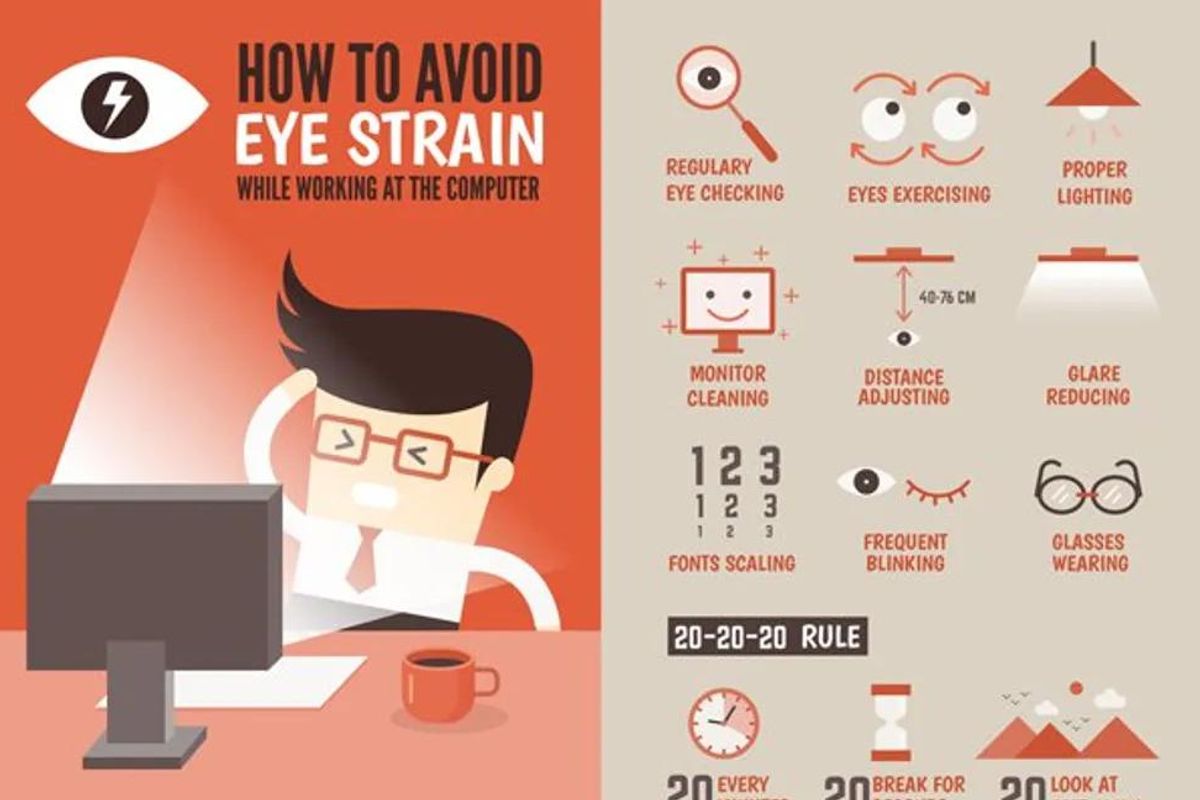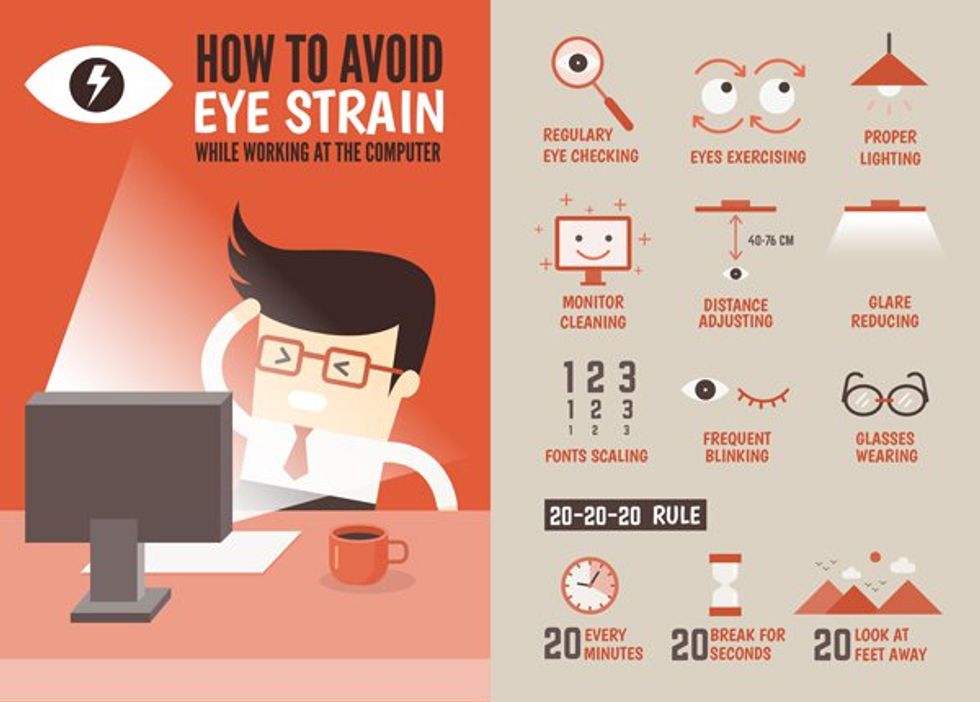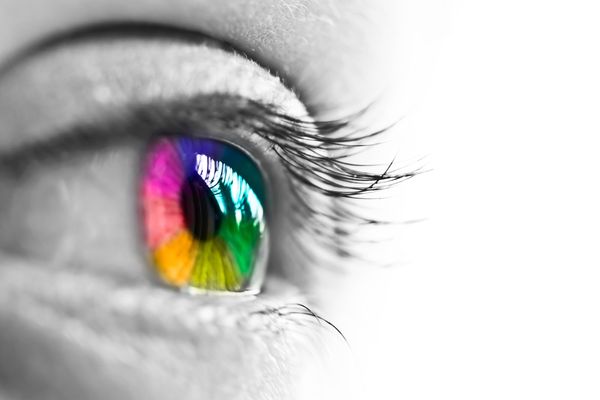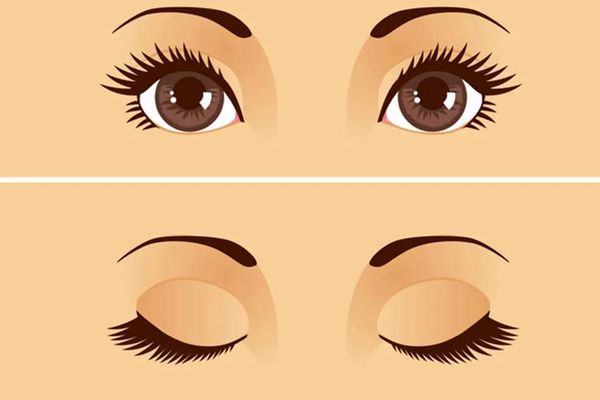Recently, my husband, while picking up the newspaper that sat outside our door, untouched for the entire day, asked me why I still subscribe to the print version. "Isn't so much easier just to read it on the computer, especially since sometimes you miss a day?" he asked.
Apologies to all the trees and ink and eco-conscious among us, but I'm a holdout for the real thing.
Maybe it's not so bad. Maybe I'm doing my eyes a favor.
Why? Because as I was reading said paper (OK, I was a day late, but the article was still relevant), I was reminded of what the computer can do to your eyes when I read about computer vision syndrome (CVS).
CVS is a real threat to your vision. And I'm sure, like many others out there, I suffer from it. It's estimated that up to 70 million workers are at risk, especially those who spend three or more hours a day in front of a computer monitor. (You know who you are.) The American Optometric Association estimates that the average American worker is spending seven hours each day on his or her computer, by the way.
Guilty as charged.
Why you get it
CVS comes from prolonged use of any digital technology, like computers, tablets, e-readers and cell phones. It occurs because your eyes have to work harder when you look at a screen, which is so very different than looking at a printed page. It won't cause permanent eye damage, but your eyes will feel damaged—dry and tired.
Jane Brody explains it this way:
"Unlike words printed on a page that have sharply defined edges, electronic characters, which are made up of pixels, have blurred edges, making it more difficult for eyes to maintain focus. Unconsciously, the eyes repeatedly attempt to rest by shifting their focus to an area behind the screen, and this constant switch between screen and relaxation point creates eyestrain and fatigue."
Even if you wear glasses or contacts, you're susceptible because your prescription might not match up to the specific viewing distances of your screen, thus creating eyestrain. This makes it even tougher to focus and can also cause you to twist and turn and bend your head into all sorts of funny angles to help with focus—hence the headaches and neck pain that are also a part of CVS. (I have at least three types of glasses to use when I am at my computer, which I need because I often switch back and forth between print and computer work.)
There are other contributing culprits at work here: Many times, along with reading on these devices come glare, poor seating posture, bad lighting, improper viewing distances and vision problems that are uncorrected to begin with (like farsightedness and astigmatism). And then, like many other health problems, the changes that occur in your eyes with aging factors into it, too.
How you know if you have it
- Dry eyes
- Neck and shoulder pain
- Blurry vision
- Headaches
- Eyestrain
What can you do (besides cutting your screen time)?
- Look away. Rest your eyes if you're using the computer for extended periods. After two hours, take a 15-minute break. And, for every 20 minutes of use, look away for 20 seconds at something 20 feet away (the "20-20-20 rule"); this will allow time for your eyes to refocus.
- Blink. We normally blink about 15 times a minute, but when we're at a screen, we blink much less. Staring at a computer can result in dry eyes, which can be painful and irritating. To keep the front surface of your eye moist, blink frequently. It's also wise to keep some lubricating drops handy. (Another way to avoid dry eye is to steer clear of air that blows directly in your face and by running a humidifier if the air in the room is dry.)
- Sit properly. Besides sitting on a comfortable, padded chair that conforms well to your body and sitting with your feet flat on the floor, the American Optometric Association suggests that you sit about 25 inches from the screen (or about arm's length). The screen should be positioned so that you are looking in a slightly downward position.
- Cut the glare. Since many screens are glass, they give off considerable glare. You can reduce it by using a matte screen filter.
- Adjust the brightness. The screen should not be brighter than the surrounding light; if it is, your eyes will have to work even harder to see. To reduce eyestrain, try adjusting the lighting in your room and at the same time, increasing the contrast on your screen.
When I complained to my ophthalmologist long ago about my irritated eyes, she mentioned that the problem could very well be computer-related, and I know now that she was right.
She suggested I wear my glasses, rather than my contacts, when possible, which I do, since my glasses are progressive lenses and can better handle the various distances my eyes need to travel. She also advised me to take frequent breaks and apply warm, moist compresses to my eyes when they feel irritated. I've yet to take that advice but am convinced that I need to, especially as my computer-time increases.
More reading:
Why Your Eyes Might Be Red and Itchy
Are You Protecting Your Eyes?
When to Seek Medical Help for an Eye Problem








